I know I’m late to the party. Mass Effect 3 came out almost 10 years ago, so the outrage over how the series ended reached maximum volume while I was still a teenager. Crazy.
It wasn’t until a year later that I played my first Mass Effect game, which means I was aware of the scandal but not personally invested until it was already over. I never got the chance to talk about how I felt.
Since then I’ve played through the series 2.5 times. Or 3 times? 4? I’ve lost count. It doesn’t matter. When the remaster, Mass Effect: Legendary Edition, was released, I bought it and played through again. Happily.
Because even though it’s almost a decade old, this trilogy is timeless. Ten years later I’m still replaying it. Ten years later I’m still thinking about what we actually got versus what could have been.
And ten years later, I’m a different writer than I was before. I now have words for the ways in which Mass Effect did and didn’t work. And now I finally have ideas for an ending that would have been so much better.
This is either the perfect moment to bring it up, or I’ve missed it by a mile. Story of my life.
But kids, we’re talking about the ending of Mass Effect 3. (“YES WE ARE,” I hear you say. Or maybe “Mass Effect is what now?")
(It’s a video game).
Needless to say, spoilers will follow.
Everything wrong with the ending we got
In some ways, BioWare set themselves up to fail. They like to write stories with subtlety, but they also like epic good-versus-evil conflicts. They like to subvert player expectations while also giving us powers of direction. Those are very delicate lines to walk, made all the more difficult by the challenges inherent in writing an ending—and not just for a single story, but a trilogy.
There were a number of missteps that might be to blame. But in my opinion the greatest mistake was failing to give their main antagonistic force any real, coherent motivation. From that one error came some of the biggest problems with the ending.
We are presented with multiple opportunities to question the Reapers, and one of the first things we try to understand is why they’ve come. But they won’t give us a straight answer. Instead, they throw around high-sounding evasions like “Your small minds cannot even comprehend our purpose.” This is a classic BioWare line that they’ve used elsewhere—such as with Corypheus in Dragon Age: Inquisition—presumably because they think it sounds intimidating. But it’s not. It doesn’t give the player anything to chew on or argue with. It ends the conversation prematurely, preventing us from forming an opinion about why things are being done the way they are. It stops the exposition, which is dangerous when we’re the ones making important decisions and need to be properly informed to do so.
At the very end of Mass Effect 3, when we finally speak to the Catalyst, he does give us a partial explanation. But I think it was the wrong one. He uses the terms “Order” and “Chaos” to describe 2 different entities: The Reapers, who stand for Order, and the races of the galaxy, who embody Chaos. The implication is that, left to our own devices, we will always end up in a state of conflict, violence, and mutually assured destruction. To be frank, he actually makes a decent point, one that most human beings (the very ones playing this video game) can agree has some truth to it.
But the reason this is not a valid explanation is because the Reapers aren’t solving the problem; they’re contributing to it. If chaos, violence, and destruction are evil, the Reapers haven’t helped the situation by coming to kill us all.
It’s almost like the writers realized this and panicked. Because the Catalyst then massages his explanation into a slightly different shape. He implies that the really inescapable threat is the conflict between organic and synthetic (or robotic) life. People will always create synthetic helpers, which will then gain sentience, turn against their creators, and cause new levels of destruction.
But this isn’t a valid explanation because it wasn’t properly set up by the preceding story. It wasn’t thematically front and center; it was only ever one piece of the puzzle. We did experience a number of either agonizing or satisfying encounters with organic life fighting against synthetic life—notably with the Quarians and the Geth, a questline that begins early in game 1. But, importantly, we resolved that conflict and ushered in a state of peace (or at least had the potential to). If the Reapers' reason for existing is to stop organic and synthetic life from developing to the point where they begin to fight one another, we’ve already proven that we don’t need the Reapers to do this because we can do it ourselves.
We’ve accomplished a lot. We’ve smoothed over major differences in the galaxy, resolved conflicts, and brought peace. Every argument the Reapers bring against us has already been contradicted by our actions in the game.
And yet they continue their attack. Which means that none of those were the real explanation. And we’re never given a better one.
I don’t blame BioWare for this. The Reapers are powerful and intimidating. Why not make them mysterious, as well? And thematically, us proving them wrong about our chaos is almost a good thing. It almost means that there’s a theme surfacing due to what the Reapers believe is our big flaw and what we’ve actually demonstrated.
But the problem is that there’s no argument left to make, no final opportunity to prove our thematic truth. Everything we might say in this moment has already been said by the preceding 90 hours of game time; there are no new revelations to be had and, crucially, no moral victories to achieve.
The game gives us 3 ending options: Control the Reapers, Destroy the Reapers, or Synthesize all organic and synthetic life into a new hybrid form that combines the strengths of both. But these are poor choices.
Control is not a satisfying conclusion because our issue up to this point has not been a lack of control in the galaxy or a lack of power. Commander Shepard brought everyone together. It can be done. Controlled Reapers are not necessary; they are a solution to a problem that no longer exists.
Synthesis is also not satisfying because, in similar fashion, organic and synthetic life have already learned to coexist. The Reapers bring nothing new to the table that wasn’t already there. In addition, both Control and Synthesis lack appeal on a primal level. They don’t give us the release we’ve been hoping for. They subvert our expectations of violence but without substituting something better in its place.
Destruction is the only ending that makes logical sense. But the very reason it makes sense is what also makes it unsatisfying. The Reapers have proven that they can’t be reasoned with; even when given evidence that they no longer serve any purpose, they continue to oppose us. They are nothing but mindless violence, and destroying them only shows that we’re the bigger fish.
In some ways this could be seen as encouraging, since we had to set aside our galactic differences in order to beat them. If they really were meant as the embodiment of mindless violence then we could be thematically seen as beating violence by way of cooperation, which is a neat message. But from the very beginning they are depicted as fearfully intelligent, perhaps even more intelligent than us, and this robs the ending of its catharsis. We haven’t conquered our primal urges of violence and war; we’ve beat another sentient race into the dust.
None of the endings are satisfying. None of them quite answers a dramatic question that was posed by the game itself or by the antagonistic force. We aren’t given a proper chance for moral victory at the very end. There’s nothing left to say, and so the ending rings hollow.
A better ending
Commander Shepard is a tricky character. Having been written with player choice in mind, he or she (my head-canon version is male Paragon Shepard, for what it’s worth) doesn’t have a guaranteed character arc. Some players have chosen to imbue him with one, but it’s not an inherent part of the story and can’t be relied upon for the climax. Instead, the game has to say something about a larger sampling of life, whether it be our squad mates, the Alliance, the human race, or the galaxy as a whole.
I’m a firm believer that moral victory is the key to a satisfying ending, at least when it comes to stories with a positive message. This means there has to be some enticing yet deceptive Lie about life that gets disproved, and a related Truth that gets substantiated through hard-earned victory. Mass Effect is full of hard-earned victory, but the Lie and Truth are left unclear.
The Reapers are a perfect vehicle for the delivery of the Lie. That’s why they need to have an explanation which appeals to us on some level, rather than one that’s incomprehensible or intentionally withheld.
There are many directions BioWare could have gone with this. If they wanted to focus on the Control ending, they could have told a story about subjugation and free will (which is almost what happened). If they wanted to focus on the Synthesis ending, they could have told a story about organic life versus synthetic life (which is also almost what happened).
But because the Destruction ending is the most satisfying on a philosophical and visceral level, and because it’s the most natural ending given the story so far (which has been entirely focused on destroying the Reapers), that’s the one I chose as my target. All it needs is a better explanation for why the Reapers exist and why they’re ultimately wrong. With a few small adjustments, I think the ending could have been twice as good.
My changes are minuscule. Not earth-shattering, although I hope they allow all the pieces to fall into place.
Here it is.
The Reapers need a motivation. What if their motivation was that they have been keeping tabs on the galaxy, waiting for the appearance of the “ideal” race? They want a species that is perfect in every way, with no shortcomings, no weaknesses, no limitations. The Reapers destroy advanced life not because advanced life is violent and chaotic but because it’s not good enough.
The reason I think this works is because it’s the final revelation. We have already proven that there’s more to us than violence, that cooperation is possible even between dramatically different peoples, and that organic and synthetic life will not always be at war. But we haven’t measured ourselves against the rod of perfection. When the Reapers tell us, in the closing minutes of the climax, that they are destroying us because we aren’t everything we could be, it’s our chance to show them they are wrong.
Destruction is still the correct ending. The Reapers have never been humanized, and by every metric they seem to be soul-less, so killing them doesn’t undo the moral victory we achieved. But it does demonstrate a profound Truth.
There is no perfect race. There are no perfect people. But there is harmony, and that might be just good enough.
The Destruction ending of Mass Effect came close to saying this, but I don’t think it ever went all the way. By making the Reapers symbols of a coherent Lie, our victory over them could speak something worth believing in.
The 3 games leading up to the ending were already saying this with their actions. All we need is for them to say it with words, too.

